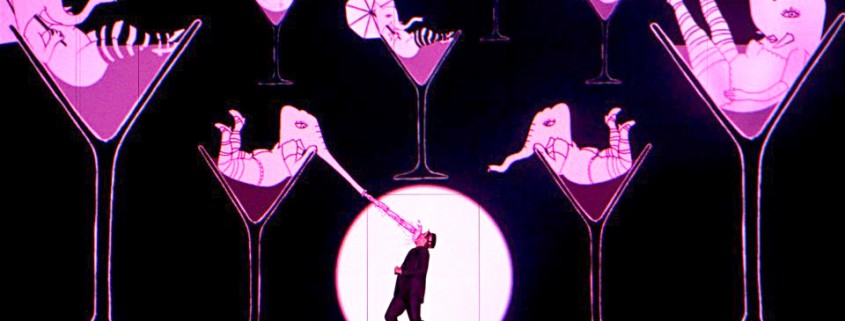LA Opera attracts students with fresh interpretations
Los Angeles Opera presented its first performance of the new year on Feb. 13 with Barrie Kosky and Suzanne Andrade’s fanciful production of Wolfgang Amadeus Mozart’s The Magic Flute. The performance was held at the Dorothy Chandler Pavilion.
The production, which returns to L.A. Opera after a successful run in its 2013-2014 season, is unlike anything one would normally expect to see on the operatic stage. Co-conceived with London-based performance company 1927, Kosky/Andrade’s The Magic Flute combines vaudevillian aesthetics with cinematic motifs of the 1920s. Strikingly vivid visual projections replace a traditional, physical set, enhancing the illusion that one is actually viewing a silent, arthouse film reminiscent of the era rather than a live performance. Overall, the entire show is a grand spectacle.
In the program notes, Kosky states, “[The] challenge is to embrace the heterogeneous nature of this opera … You almost have to celebrate the contradictions and inconsistencies of the plot and the characters, as well as the mix of fantasy, surrealism, magic and deeply touching human emotions.” Indeed, this highly-collaborative production provides a refreshing update to an otherwise contrived storyline.
From a musical standpoint, the production was equally as delightful. The orchestra, led by music director of L.A. Opera James Conlon, upheld a precise balance that was neither exhaustive nor timid. The singers, comprised of up-and-coming starlets on the brink of international success, offered captivating interpretations that were just as fresh as the production itself. Tenor Ben Bliss sang the role of Tamino with intelligent phrasing that complimented his round, plummy tone. Norwegian soprano Marita Sølberg made her L.A. Opera debut as Pamina, maintaining impressive control over her naturally rotund voice. Her Act II aria “Ach, ich fühl’s” was particularly breathtaking.
The finest singing of the night, however, belonged to soprano So Young Park, who made quite an impression as Queen of the Night. Park, a current participant in L.A. Opera’s Domingo-Colburn-Stein Young Artist Program, was able to capture the character’s madness without sacrificing her impeccable vocal technique, as was evident in her second aria “Der Hölle Rache.” She received the largest ovation during the curtain call.
Other standouts include baritone Jonathan Michie, whose comedic presence lent itself well to the role of Papageno. Bass Wilhelm Schwinghammer, also making his LA Opera debut, provided a solid portrayal as Sarastro. As the Three Ladies, sopranos Stacey Tappan, Summer Hassan and mezzo-soprano Peabody Southwell provided some of the most beautiful harmonies of the evening. Just as charming was soprano Vanessa Becerra, who sang a dulcet-toned Papagena.
In addition to offering world class performances, LA Opera strives to instill the love of classical music into its younger audiences. Many programs have been created to directly benefit students, such as Opera U, a series which offers full-time high school and college student discounted performance tickets. Fran Rizzi, director of public relations at LA Opera, spoke about these programs.
“Through [Opera U], students sign up for a newsletter, and send students an email, typically 48 hours before the performance, when Student Rush tickets become available,” Rizzi said.
Furthermore, the new year marks the commencement of LA Opera’s Tweet Seats, in which students are selected to live-tweet throughout the show from their seats, abolishing the stigma of cell phone use during a performance.
“We try very hard to make sure everyone has access to the opera,” Rizzi said.
The Magic Flute runs until March 6. Further information regarding student programs and performance dates can be found online.

